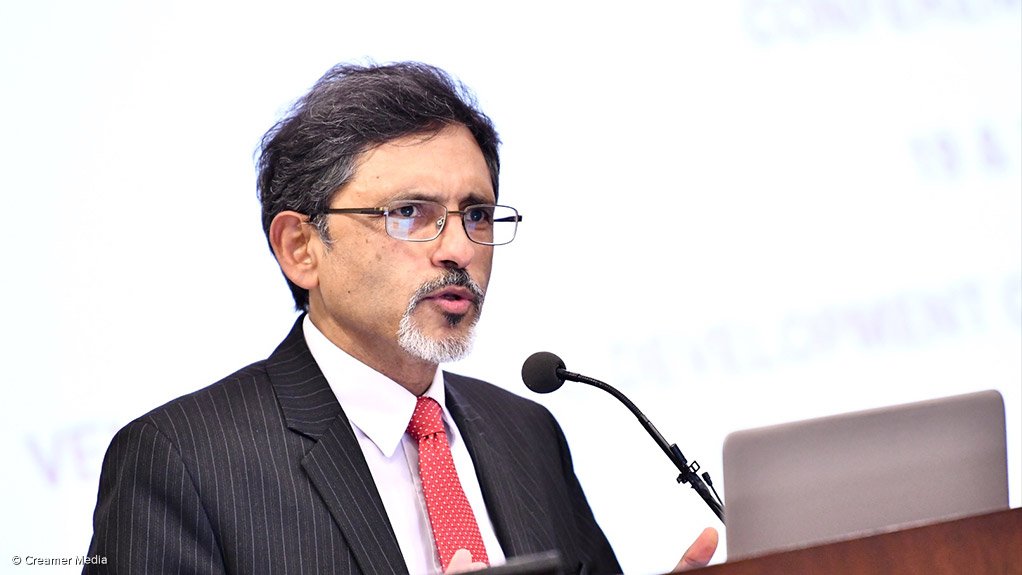Competition Bill includes ‘greater flexibility’ for large firms to collaborate
The overarching objective of the Competition Amendment Bill is to foster a “new deal for economic transformation and inclusion”, but Economic Development Minister Ebrahim Patel also notes that the proposed legislation introduces greater flexibility for collaboration by large firms.
Speaking at the fourth Annual Competition and Economic Regulation Week in Johannesburg on Thursday, Patel said flexibility had been increased to allow large companies to work together in pursuit of legitimate industrial policy objectives, such as the expansion of industrial output and employment.
“This has been done through clearer and expanded exemption provisions in the law, greater requirements for the regulator to publish guidelines on restricted or prohibited practices and the introduction of an advisory opinion service in the legislation itself.”
The Minister indicated that the flexibility package emerged from a series of discussions with organised business over the past several months after a draft Bill was published for comment in December last year.
More than 60 submissions were made, including from local and international business, and there had also been a series of consultations under the aegis of the National Economic Development and Labour Council.
“These public consultations enriched the final Bill which was presented to Cabinet earlier this month, and which has been introduced to Parliament.”
However, Patel stressed that, taken together, the changes were targeted at increasing economic inclusion, which Patel described as the “defining issue of our times”.
“It is therefore key that our competition statute ensures that concentration does not present unacceptable barriers to market entry and does not lead to economic stagnation where firms with significant market power use their power to capture rents while preventing entry of innovative small and medium-sized firms or those owned by black South Africans.”
The amendments sought to provide the competition authorities with greater powers to address structural barriers to inclusion, primarily through the market inquiry instrument.
The Bill expands the Competition Commission’s use of market inquiries and also allows for findings to be binding. However, appeals can be made to the Competition Tribunal, while tribunal findings can be appealed before the Competition Appeal Court.
The proposed legislation also tightens up on definitions for concepts such as excessive and predatory pricing, as well as margin squeeze and dramatically increases penalties for repeat offenders to 25% of turnover. The maximum penalty for first-time offenders is 10% of turnover, but the fine can be extended to the turnover of a holding company, in an instance where it had knowledge of an offence by a subsidiary.
Controversially, the Bill also makes provision for a national security veto of acquisitions by foreign companies of South African firms, products or know-how in sensitive sectors. Critics believe the provision is too broad and extends too much discretion to government in adjudicating foreign mergers.
Lawmakers would consider the Bill in the coming months and were expected to return it for President Cyril Ramaphosa’s signature before year-end. Patel described the amendments as the most significant piece of economic legislation that Parliament would consider during 2018.
However, he also described the amendments as necessary, but insufficient, to facilitate greater economic inclusion and transformation. Therefore, the changes should be be accompanied by improvements in the way government issued licences, procured goods and services and incentivised and supported small and medium-sized firms.
“We need the full suite of industrial policy tools to be used in combination with the new provisions in the Bill to realize a new deal for economic transformation and inclusion.”
Article Enquiry
Email Article
Save Article
Feedback
To advertise email advertising@creamermedia.co.za or click here
Announcements
What's On
Subscribe to improve your user experience...
Option 1 (equivalent of R125 a month):
Receive a weekly copy of Creamer Media's Engineering News & Mining Weekly magazine
(print copy for those in South Africa and e-magazine for those outside of South Africa)
Receive daily email newsletters
Access to full search results
Access archive of magazine back copies
Access to Projects in Progress
Access to ONE Research Report of your choice in PDF format
Option 2 (equivalent of R375 a month):
All benefits from Option 1
PLUS
Access to Creamer Media's Research Channel Africa for ALL Research Reports, in PDF format, on various industrial and mining sectors
including Electricity; Water; Energy Transition; Hydrogen; Roads, Rail and Ports; Coal; Gold; Platinum; Battery Metals; etc.
Already a subscriber?
Forgotten your password?
Receive weekly copy of Creamer Media's Engineering News & Mining Weekly magazine (print copy for those in South Africa and e-magazine for those outside of South Africa)
➕
Recieve daily email newsletters
➕
Access to full search results
➕
Access archive of magazine back copies
➕
Access to Projects in Progress
➕
Access to ONE Research Report of your choice in PDF format
RESEARCH CHANNEL AFRICA
R4500 (equivalent of R375 a month)
SUBSCRIBEAll benefits from Option 1
➕
Access to Creamer Media's Research Channel Africa for ALL Research Reports on various industrial and mining sectors, in PDF format, including on:
Electricity
➕
Water
➕
Energy Transition
➕
Hydrogen
➕
Roads, Rail and Ports
➕
Coal
➕
Gold
➕
Platinum
➕
Battery Metals
➕
etc.
Receive all benefits from Option 1 or Option 2 delivered to numerous people at your company
➕
Multiple User names and Passwords for simultaneous log-ins
➕
Intranet integration access to all in your organisation



















